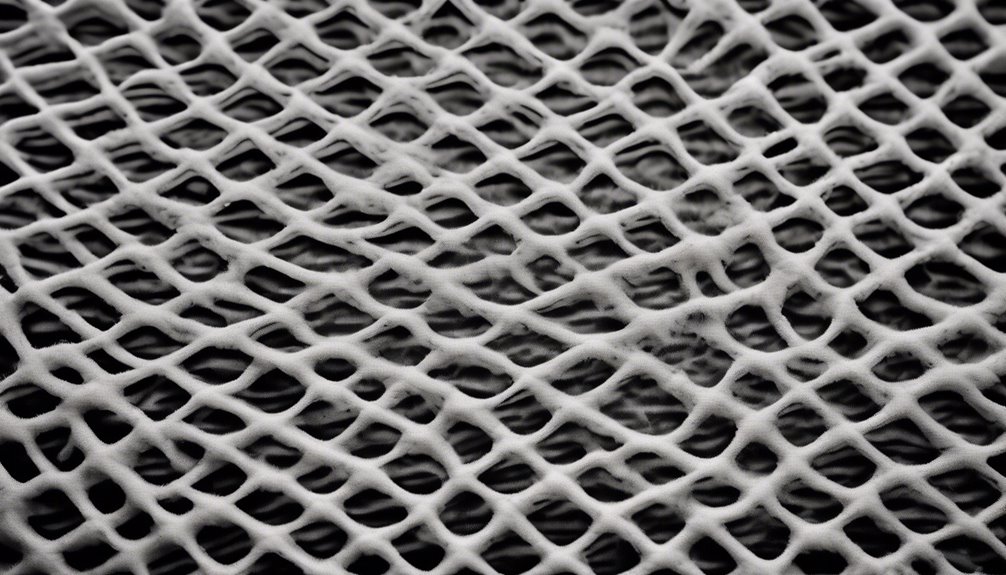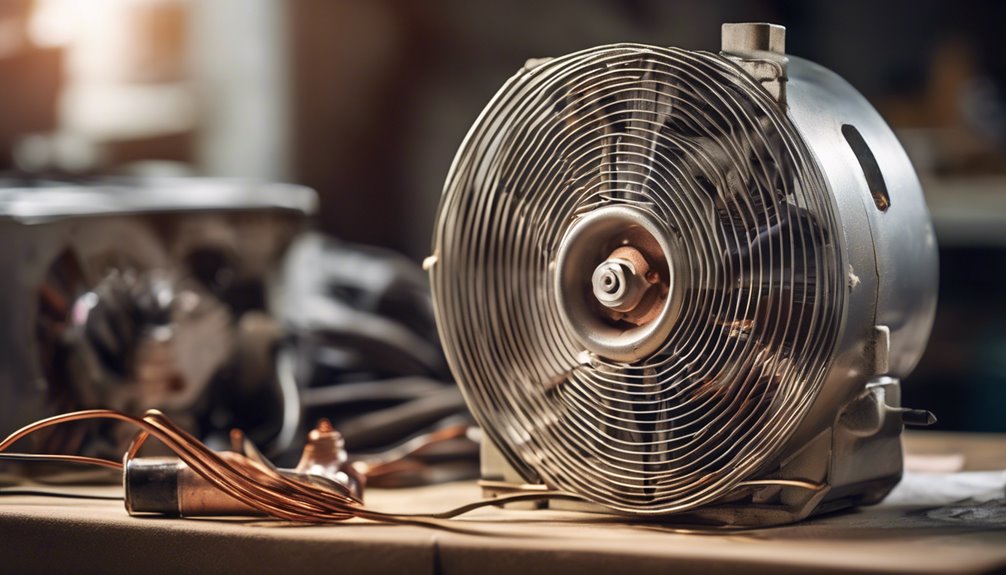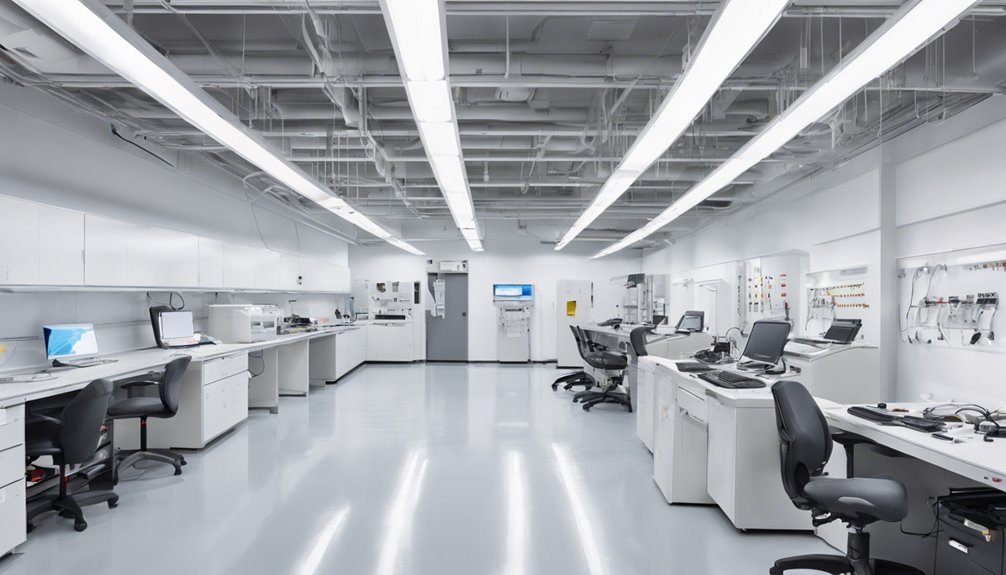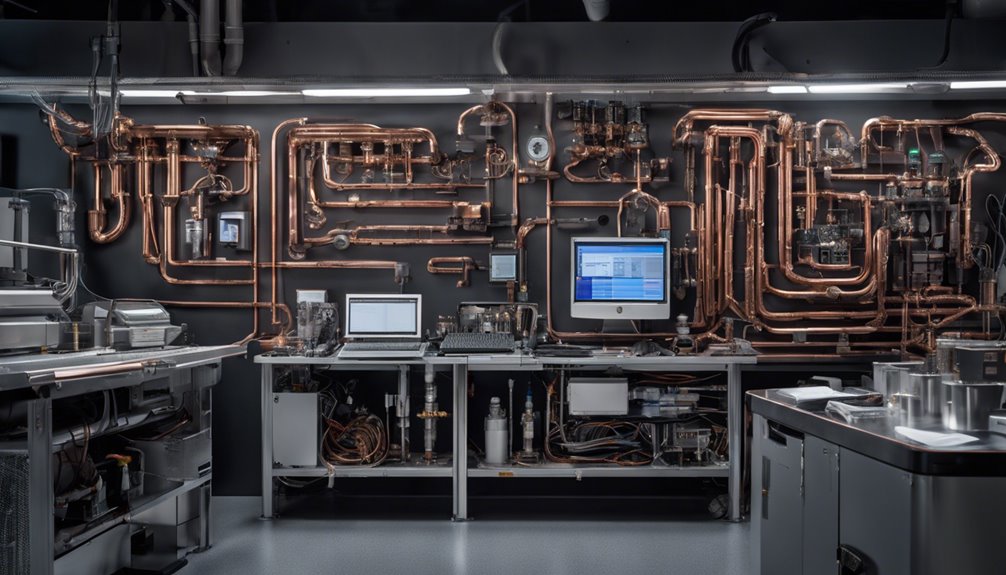You should change your AC filter every 1-3 months, depending on your home's air quality, filter efficiency, and household size. Pet owners and those living in high-traffic areas or humid climates may need to change filters more often. Look for signs like a thick layer of dust or debris, unusual odors, or a spike in energy bills to know it's time for a change. If you want to ensure your AC runs efficiently and effectively, keep an eye on these factors – and discover more secrets to a happy, healthy home.
Key Takeaways
- Filter replacement frequency depends on air quality, filter efficiency, household size, and occupant habits, among other factors.
- Check filters monthly and change them as needed, considering factors like pet ownership, regional climate, and AC unit usage.
- Basic filters last 1-3 months, mid-range filters last 3-6 months, and high-end filters last 6-12 months, but lifespan varies with usage and conditions.
- Dirty filters can cause increased energy bills, reduced airflow, and AC breakdowns, while clean filters improve indoor air quality and reduce allergy symptoms.
- Look for signs like thick dust layers, unusual odors, or increased energy bills to determine when to change your AC filter.
Factors Influencing Filter Replacement
When deciding how often to replace your air conditioner's filter, several factors come into play.
You'll want to consider the air quality in your home, as pollutants and allergens can quickly clog your filter. If you or a family member suffers from allergies or respiratory issues, you may need to replace your filter more frequently to maintain good air quality.
Additionally, the filter efficiency will also impact how often you need to replace it. A high-efficiency filter can capture more particles, but it may need to be replaced more often to maintain its effectiveness.
Understanding Filter Types and Quality
You've got a range of air conditioner filter types to choose from, each with its own strengths and weaknesses.
When selecting a filter, consider the filter materials used. Fiberglass filters are inexpensive but less effective, while pleated filters capture smaller particles.
High-efficiency filters with electrostatic charges or activated carbon can trap even the tiniest pollutants. If you or a family member suffers from allergies or respiratory issues, look for filters with high MERV ratings (11-16) for superior air purity.
Average Filter Lifespan
The average lifespan of an air conditioner filter varies depending on several factors, including the filter type, usage, and environmental conditions.
You'll find that high-quality filters with better filter durability tend to last longer than their cheaper counterparts. Typically, a basic filter can last anywhere from 1-3 months, while a mid-range filter can last 3-6 months.
If you've invested in a high-end filter, you can expect it to last 6-12 months. However, it's essential to remember that these are general guidelines, and your filter's lifespan may differ.
Regular maintenance and inspections will help you determine the best replacement schedule for your AC filter.
Household Size and Occupancy Impact
Household size and occupancy play a significant role in determining how often you need to change your AC filter.
The more people living in your home, the more dust, dirt, and other particles are generated, clogging your filter faster.
- Your family dynamics, such as having young children or elderly family members, can impact filter maintenance.
- Occupant habits, like smoking or having frequent guests, also contribute to a dirtier filter.
- Even the number of people working from home or staying indoors for extended periods can increase the filter's workload.
Pet Owners and Filter Maintenance
Pet hair and dander significantly contribute to a dirty air filter, making pet owners more frequent filter changers.
You're probably aware that your furry friends shed hair and produce dander, which circulate in the air and eventually settle on your AC filter. As a result, your filter accumulates hair and dander, reducing airflow and forcing your AC to work harder.
Regular filter changes are crucial to maintain good air quality and system efficiency. You should aim to change your filter every 1-2 months, depending on the number of pets you have and their shedding habits.
Allergy Sufferers and Filter Replacement
Airborne allergens like dust, pollen, and mold spores can exacerbate your symptoms, making it difficult to breathe and live comfortably.
As an allergy sufferer, you know how crucial it's to maintain good air quality in your home. Failing to replace your AC filters regularly can trigger allergy attacks and worsen your condition.
- Regular filter replacements can reduce allergen circulation by up to 90%.
- Clean filters help remove airborne pollutants, improving indoor air quality.
- By changing your filters frequently, you can breathe easier and reduce the risk of allergy attacks.
Regional Climate and Filter Change Frequency
How often do you need to change your AC filters, and does your region's climate play a role in that frequency? The answer is yes, it does. If you live in humid regions or coastal areas, you'll need to change your filters more frequently due to the high levels of moisture and pollutants in the air.
| Region | Filter Change Frequency | Reason |
|---|---|---|
| Humid regions | Every 1-2 months | High moisture levels clog filters faster |
| Coastal areas | Every 1-2 months | Salt air and pollutants reduce filter lifespan |
| Dry regions | Every 3-4 months | Low humidity means filters last longer |
| Urban areas | Every 2-3 months | Higher pollution levels reduce filter effectiveness |
| Rural areas | Every 4-6 months | Cleaner air means filters last longer |
Filter Change Indicators and Warning Signs
You know it's time to change your AC filter when you notice dirty filter signs, such as a thick layer of dust or debris.
If you start to detect unusual odors coming from your vents, it's likely your filter is overdue for a replacement.
Additionally, if you've noticed a spike in your energy bills, a dirty filter could be the culprit.
Dirty Filter Signs
What's hiding in your air ducts might shock you – a dirty filter that's been quietly sabotaging your indoor air quality and HVAC system's performance.
You mightn't even realize it, but neglecting filter inspection can lead to serious consequences.
Here are some dirty filter signs you shouldn't ignore:
- Your energy bills are higher than usual, indicating your HVAC system is working harder to compensate for the dirty filter.
- You notice a significant decrease in airflow from your vents, making your home feel stuffy and uncomfortable.
- You see visible dust and debris accumulating on your furniture and floors, a clear sign that your filter is no longer doing its job.
Don't let filter neglect compromise your indoor air quality and system performance.
Stay on top of filter inspections to ensure a healthy and efficient HVAC system.
Unusual Odors Appear
Dirty filters can wreak havoc on your indoor air quality, and one often-overlooked sign of a dirty filter is the appearance of unusual odors in your home.
You might notice a musty smell wafting through your living room or a pungent aroma lingering in your bedrooms. These unpleasant odors are a clear indication that your air filter needs attention.
As air passes through a dirty filter, it picks up dirt, dust, and other particles, which can then circulate throughout your home, compromising your indoor air quality.
If you're noticing strange smells, it's likely your filter is to blame. Change it out to breathe easier and enjoy fresher, cleaner air in your home.
Increased Energy Bills
How much are you paying for your energy bills lately?
If you've noticed a spike, it may be due to a dirty AC filter. A clogged filter forces your air conditioner to work harder, resulting in energy waste and higher bills. This is a costly mistake that can be easily avoided.
- Your energy bills are higher than usual
- Your AC is running longer than usual to cool your home
- Your system is producing more noise than usual due to the added strain
DIY Filter Replacement vs. Professional Assistance
When it comes to replacing your air conditioner's filter, you have two options: doing it yourself or hiring a professional.
If you're comfortable with DIY projects, replacing the filter yourself can be a cost-effective solution. You can purchase a new filter at a relatively low cost, typically ranging from $10 to $50, depending on the type and quality.
With some handy tips, you can replace the filter in no time. However, if you're not familiar with the process or have a complex AC system, it's recommended to hire a professional.
They can ensure the job is done correctly and efficiently, saving you time and potential future repair costs.
Frequently Asked Questions
Can I Clean and Reuse My AC Filter Instead of Replacing It?
You can clean and reuse your AC filter, but it's not recommended as it reduces filter longevity. Proper filter maintenance involves gentle vacuuming or tapping to remove dirt, but washing can damage the filter, making it less effective.
Will a Dirty AC Filter Increase My Electricity Bill?
You're wondering if a dirty AC filter will hike your electricity bill, and the answer is yes! A dirty filter decreases filter efficiency, forcing your AC to work harder, which increases energy consumption and ultimately, your electricity costs.
Can I Use a Filter With a Different MERV Rating Than Recommended?
You're wondering if you can use a filter with a different MERV rating than recommended. While it's technically possible, it's not always the best idea. Filter compatibility and rating flexibility can affect airflow and system performance, so it's best to stick with the recommended rating for optimal results.
Do AC Filters Need to Be Changed at the Same Time Every Year?
You don't need to change your AC filters at the same time every year; instead, create seasonal schedules or filter calendars to track replacements based on usage, ensuring your system runs efficiently and effectively throughout the year.
Can I Change My AC Filter During the Winter Months?
You can change your AC filter during the winter months, but it's essential to prioritize winter maintenance and perform a filter inspection to ensure your system runs efficiently and effectively throughout the season.
Conclusion
You've learned the factors that influence how often to change your AC filters, from household size to regional climate. Remember, average filter lifespan is 1-3 months, but it's crucial to monitor and respond to filter change indicators. By staying on top of filter maintenance, you'll breathe easier, save energy, and extend your AC's lifespan. Don't wait until your filter is clogged and your system is struggling – take control of your indoor air quality today!



